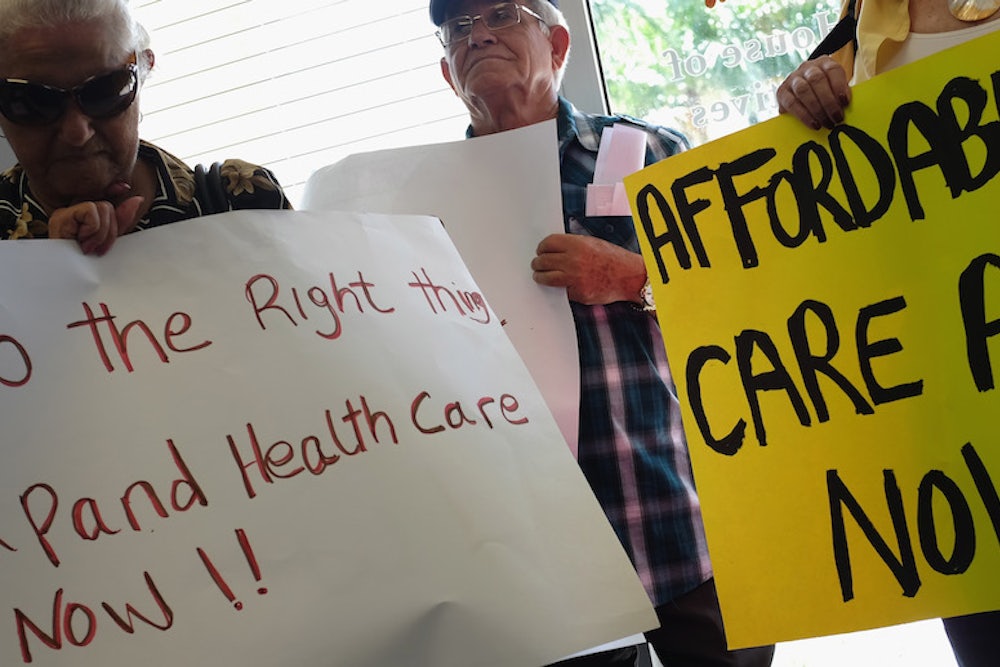Kaiser Health News reporter Sarah Varney has written a masterful story in collaboration with Politico Magazine about the consequences of Mississippi’s decision to resist the implementation of the Affordable Care Act—and, most crucially, to refuse generous federal funds the law makes available to all states that agree to expand their Medicaid programs.
As the article’s headline indicates, Mississippi is the poorest, sickest state in the country—a state that stood to gain as much as or more than any other by cooperating with the federal government.
Instead, “[Governor Phil] Bryant made it clear Mississippi would not participate, leaving 138,000 low-income residents, the majority of whom are black, with no insurance options at all. And while the politics of Obamacare became increasingly toxic, the state’s already financially strapped rural hospitals faced a new crisis from the law’s failure to take hold: They had been banking on newly insured patients to replace the federal support for hospitals serving the uninsured, which was set to taper off as people gained coverage. Now, instead of more people getting more care in Mississippi, in many cases, they would get less.”
You can tell a similar version of this story in all of the nearly two dozen states that have declined to expand Medicaid so far. But the statistics are most stark in Mississippi, and all the more galling when you recognize that, for the time being at least, Mississippi is actually paying for this outcome.
For the next couple years, the Medicaid expansion would cost Mississippi $0. As the quote above indicates, though, refusing the expansion didn’t protect Mississippi from other provider cuts, which the influx of Medicaid money was intended to offset. The combined effects of non-expansion are striking. State spending on Medicaid will grow faster next year in states that declined the expansion than in states that accepted it. As Kevin Drum wrote for Mother Jones on Monday, non-expansion states “actually prefer spending more money if the alternative is spending less but helping their own poor with medical coverage.”
Of course as time goes on, the story may change in Mississippi and elsewhere. Later this decade, the 100 percent federal match for Medicaid expansion beneficiaries will drop to 90 percent. The Kaiser Family Foundation projects that Mississippi would’ve had to pay $649 million over a decade—about four percent of total Medicaid spending today—to insure those 138,000 poor residents in the coverage gap, and tens of thousands more, if it had adopted the expansion. A few hundred dollars per beneficiary per year.
That calculation contains a great deal of uncertainty. For instance, it doesn’t take into account the stimulative effect of all those federal Medicaid dollars flowing into the state. But it’s a low cost either way. And yet Mississippi made its decision without regard to the analytical and practical impacts of the expansion. The only thing Bryant knew for sure when he insisted that Mississippi would sit out the expansion is that refusing to collaborate with President Obama to insure his state’s poor would do real, immediate harm to the state’s budget and health system. And he did it anyway.
